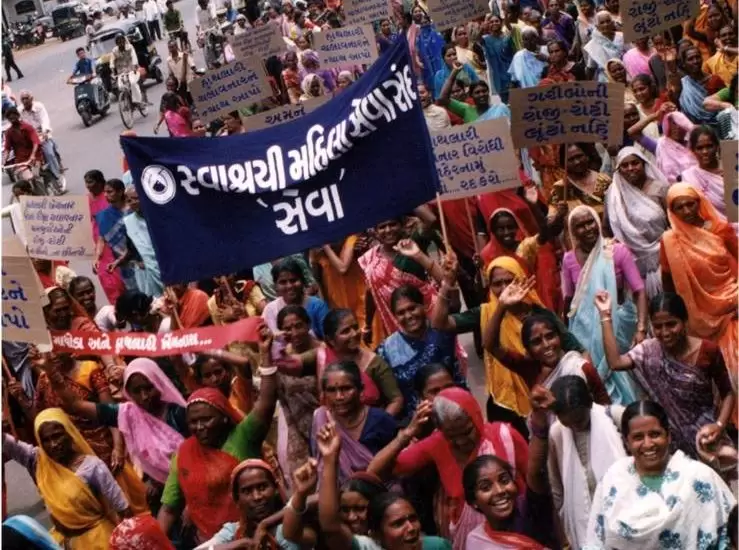September 7 is the birthday of SEWA’s founder, Ela Bhatt, who sadly passed away in November 2022. To mark the day, SEWA General Secretary Jyoti Macwan reflects on Elaben’s legacy, and how it will shape the union’s future.
On our founder’s birthday we ask ourselves a question she too would have asked if she was still with us: in 2022 we celebrated SEWA’s 50th birthday, and so, if we want to celebrate 100 years of SEWA, then what is our dream for the next 50 years?
Elaben reminded us that we have worked hard – through our collectively organized strength – to achieve full employment and become self-reliant. However, COVID-19 affected not only our livelihoods but took away so many lives of all ages, including children! COVID-19 delivered harsh lessons. We must add to that the impact of climate change both on livelihoods and health! This itself is a huge attack, a major hindrance to achieving our goals.
Ela Bhatt, our founder challenged us: “Can we clean our sky?”
So, with all these challenges how we will achieve roti, kapda, makan—at least food for our generations to live their lives? Can all our members dream of the life we want for our children over the next 50 years?
When SEWA celebrated 50 years of organizing on April 12, 2022, these were the questions confronting women workers from the informal economy. Members of SEWA, from 18 states of India, resolved to work towards building “Cleanier Skies/Swacch Akash (in the local language).” SEWA has prepared a strategy to have all our 2.5 million members work on climate action, to make their work, their livelihoods green. SEWA is becoming a green union and advocates for a green transition under the leadership of women workers: rural workers, agricultural workers, small farmers, and workers in food system.
SEWA as a green union will work to build an Economy of Nurturance. Let me share what we mean by the Economy of Nurturance. It is an economy that generates employment locally in such a way that it does not snatch away someone else’s employment. It generates employment that assures and secures the 6 basic needs: food, clothing, shelter and access to health care, education and financial services.
This is possible when we build start-ups or enterprises that are owned and managed by local communities. It is possible when the supply chain is local and decentralised. Our founder, the late Ela Bhatt, called this the 100 Miles approach; we must cut down the distance between the producer and the consumer. This approach not only addresses economic violence but also the growing climate crises.
By building local and decentralised supply chains, by building cooperatives and collectives locally, by making producers the owners and managers, we will build an Economy of Nurturance not just for one agricultural worker or even for the 2.5 million SEWA members, but for all our sisters, a solidarity of sisterhood: Hum Sab Ek Hai. We are all one. This is the SEWA dream for the next 50 years.
